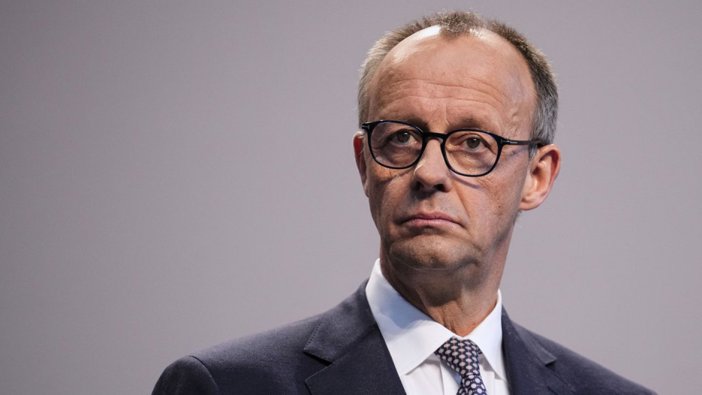
Merz firmly rejects cooperation with AfD amid migration remarks
Chancellor Merz maintains distance from the far-right AfD and stands by his controversial migration remark as Germany’s centre-right faces electoral pressure.
Chancellor Friedrich Merz has reaffirmed that under his leadership the Christian Democratic Union (CDU) will maintain a strict no-cooperation policy with the far-right Alternative for Germany (AfD), whom he described as the party’s “main opponent” ahead of the 2026 state elections. At the same time, Merz stood by his divisive remark linking migration and the “cityscape,” refusing to retract it despite significant public and intra-party criticism.
Strategic Context: Why This Matters Now
The timing of Merz’s statements comes at a moment of heightened electoral risk for the center-right bloc. In Germany’s federal election held on 23 February 2025, the CDU/CSU alliance won 28.5 % of the vote, while the AfD achieved 20.8 %—the far-right’s strongest showing to date.
More recent polling data show the AfD has surged further: one April 2025 Reuters survey found the AfD overtaking the CDU/CSU in some measures, marking a “setback” for Merz’s coalition.
With state elections looming in 2026—especially in eastern states where the AfD polls at 30 %-plus—the CDU’s strategy and messaging are under intense pressure: failure to maintain the firewall or confusion in tone risks loss of voter trust and electoral ground.
Merz’s Message: No Collaboration, Clear Distinctions
At the conclusion of a two-day CDU leadership retreat held in Berlin’s Grunewald forest, Merz declared firmly:
“There is no common ground between the CDU and the AfD… We are separated not only by details, but by fundamental political convictions.”
The retreat focused on how to counter the AfD’s rising influence, refine the CDU’s narrative and shore up the centre-right’s identity.
Merz painted the AfD’s approach as grounded in negativity and problem-politics, stating the party’s “business model” is the constant search for new crises rather than solutions. The CDU, he charged, will offer a vision of a positive, optimistic Germany—rather than the “doom-and-gloom rhetoric” he attributed to the AfD.
Controversial “Cityscape” Comment: What Was Said and Why It Resonates
During a visit to Potsdam, when questioned about the AfD’s resurgence and migration policy, Merz said:
“But we of course still have this problem in the cityscape, and that is why the Federal Interior Minister is now working on large-scale returns.”
The phrasing—especially “problem in the cityscape”—was immediately criticised by opposition parties and civil-society actors for echoing populist and far-right tropes that link migration to urban decline.
Despite the backlash, Merz refused to apologise:
“I have nothing to take back. On the contrary — I underline it once more. We must change something, and the Interior Minister is doing exactly that.”
He further claimed that many citizens he had spoken to—particularly youth and women—shared concerns about public-space safety after dark, which he linked to broader political distrust.
Who Is Impacted, and What Could Change?
Who is impacted? In states like Saxony and Thuringia, the AfD achieved share of votes of 37.3 % and 38.6 % respectively in early 2025 — far ahead of the CDU’s 19.7 % and 18.6 % in those states.
These figures underscore why the eastern states are priority battlegrounds. Voters there signal stronger frustration with migration and security issues, providing fertile ground for the AfD’s surge.
What could change? Internal CDU strategy documents revealed a two-pronged plan:
- Preserve the formal “no-cooperation” line with the AfD.
- Reframe the CDU’s message to combine firmness on migration and public safety with a positive vision of Germany—not purely fear-driven or exclusionary—but one rooted in reform and renewal.
Why now? The dual challenge is that the CDU must both defend democratic norms by rejecting the far-right and respond credibly to voters alarmed about migration, security and social cohesion. Absent a coherent message, the party risks losing trust or appearing inconsistent.
Internal Tensions and Coalition Strain
Despite the public show of unity, coalition and intra-party friction is clear:
- Berlin’s Governing Mayor Kai Wegner (CDU) criticised Merz’s comment as “too sweeping,” emphasising that crime should be addressed with “reliable figures, not vague feelings.”
- Integration Commissioner Natalie Pawlik (SPD) warned that stigmatising migrants through simplistic language is socially corrosive and may inadvertently strengthen the wrong voices.
- In Bavaria, CSU leader Markus Söder reinforced the “no way” policy toward the AfD, but defended tougher migration rhetoric, acknowledging the visible public-space concerns many citizens cite.
These tensions highlight the broader challenge: the coalition must project unity and disciplined messaging, while disparate regional realities and voter concerns create pressure for nuanced adaptation.
| Metric | Value | Significance |
|---|---|---|
| CDU/CSU vote share (Feb 2025) | 28.5 % | Largest share but well short of historic highs |
| AfD vote share (Feb 2025) | 20.8 % | Far-right’s best performance ever |
| AfD polling share (April 2025) | ~27 % | Indicates continued momentum |
| AfD results in Saxony / Thuringia | ~37-38 % | Major strength in former east German states |
Does Chancellor Merz rule out any collaboration with the AfD?
Yes—he unequivocally ruled out cooperation under his leadership, citing fundamental differences in values and vision.
Why did Merz’s migration comment provoke backlash?
By referring to a “problem in the cityscape,” the comment tapped into imagery and language often used by populist and far-right groups to link migration with urban decline and safety issues. The rhetoric led to protests and accusations of indirect stigmatization.
What are the broader implications?
For the centre-right in Germany, the next state elections will test both strategic coherence and credibility. If the CDU appears detached from voter concerns or muddled in its identity, the AfD’s rise may accelerate—undermining the democratic mainstream.
Conclusion: A Critical Crossroads for Germany’s Centre-Right
Chancellor Friedrich Merz has drawn a firm barrier between his party and the far-right AfD—yet his own migration framing has introduced rhetorical ambiguity. While the substance of his position remains anchored in democratic centre-right ideology, the style of his message risks mimicking the populist tone he claims to oppose.
As Germany enters a pivotal electoral cycle, the question is not just what the CDU says, but how it says it. With trust fragile, the coalition narrow and the far-right emboldened, maintaining the firewall against extremists while addressing genuine voter concerns will be one of the coalition’s greatest challenges. The success or failure of this approach could shape the future of Germany’s political centre and democratic stability.
Sources: Reuters AP News The Guardian Wikipedia






